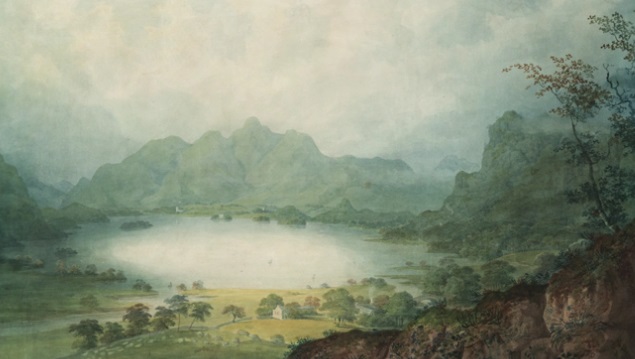Now we look at three philosophies inspired by death and suffering. Two came from poets—carpe diem and To be or not to be—and one came from a beggar—Life is suffering—who started a religion.
After looking at all three, we’ll think about thinking and end by enjoying.
We begin with carpe diem.
Most people have heard of carpe diem. Robin Williams taught us all about it in Dead Poet’s Society (1989).
The Merriam-Webster Dictionary defines carpe diem as “the enjoyment of the pleasures of the moment without concern for the future.” Google concurs saying, “used to urge someone to make the most of the present time and give little thought to the future.”
We moderns translate carpe diem as “seize the day.” It is assertive and refers to taking control or possession of something.
Advertisers use the expression to sell products—t-shirts, posters, beauty products, fragrances, necklaces, wine. They like to remind us that one day each and every one of us will be dead so we better buy their product and book that trip now before it’s too late!
In Carpe Diem Regained (2017), philosopher Roman Krznaric said that “seizing” the day brings to mind people who take what they can get and get things done.
It’s the philosophical equivalent of actor Shia LaBeouf screaming at us to “DO IT! JUST DO IT! DON’T LET YOUR DREAMS BE DREAMS!“
People use the phrase as a warning or direct order to take charge of your own happiness and make the most of it, but then the question becomes: “How do you carpe diem?”
Carpe diem first appeared in 20 BC in book 1.11 of the Odes by Roman poet Quintus Horatius Flaccus (65 BC – 8 BC), aka Horace.

Horace’s poem emphasizes the fleeting nature of time. He says we shouldn’t worry about how long we live or waste time talking (presumably about death). Most translations say Horace told us to “Seize the present; put very little trust in tomorrow (the future)” (Wikipedia).
Years later Jesus (1-33) is quoted as saying something similar, “So don’t worry about tomorrow, for tomorrow will bring its own worries. Today’s trouble is enough for today” (Matt. 6:34).
It’s no surprise that Horace and Jesus advised us not to worry about the future. Life was short in ancient days. If you include infant mortality (and crucifixion), life expectancy in the Roman Empire was about 22–33 years (source).
Trouble is, carpe diem doesn’t actually mean seize the day.
Horace has been lost in translation and distorted by modern culture. According to Latin scholars, carpe diem is really a horticultural metaphor designed to encourage people to enjoy the sensory experience of nature (source).
Funny how nature isn’t part of carpe diem today.
(Then again, maybe it isn’t.)

Carpe comes from carpō meaning to “pick or pluck” fruit when it’s ready and diem comes from dies which means “day.”
“Pluck the day [as it is ripe]” or “enjoy the moment” is a more accurate translation than “seize,” as in, “take hold of suddenly and forcibly” or “take (an opportunity or initiative) eagerly and decisively.”
It’s a subtle difference but philosophically speaking, it’s huge. Instead of a fist pump to “Seize the day!” and assert one’s will, it’s an open palm receiving what is given by nature (of which we are).
Cue music: “Think About It” by SAULT.
But what if you can’t enjoy the sensory experience of nature? What if you’ve thought yourself into not wanting to live? What then?

In Shakespeare’s play Hamlet, Hamlet asks himself if he should suffer the misery of life (a “sea of troubles”) or should he kill himself (“take arms against a sea of troubles”) to end “heart-ache and the thousand natural shocks.”
But then Hamlet wonders if there is an afterlife, and if there is, what if that afterlife is worse than life?
Hamlet’s question of life and death is a question of existence and nothingness, but according to Harvard professor Jeffrey R. Wilson (2017), “To be, or not to be” is not what it seems to be (source). Hamlet could be faking because he knows someone’s listening.
Wilson points out how philosophy and drama are different. Philosophy is about knowing whereas drama is about doing.
Years before Hamlet debated life vs. death and Horace had his horticultural insight as master of a country estate, another aristocrat, Siddhartha Gautama (the “Buddha”) (c. 5th-4th century BC), bummed everybody out with his Noble Truths including: “birth is suffering, aging is suffering, illness is suffering, death is suffering, union with what is displeasing is suffering, separation from what is pleasing is suffering and not getting what one wants is suffering” (source).
That’s a lot of suffering. You can’t win, so why even try?
According to this philosophy you’re born to suffer, but if you accept that life is crap, you won’t be surprised when it is crappy or expect it to be any other way.

“Philosophy Tech Support”, Existential Comics 51: https://existentialcomics.com/comic/51
This idea that we cause ourselves suffering by resisting what is, is something Stoics, Epicureans and Bill W., founder of Alcoholics Anonymous, also discovered.
Gautama maintained that things which cause pleasure eventually fail because when we like something we think about it and we want it again (and again…) and it’s the craving that causes trouble.
The idea is that suffering is created by our craving for pleasure, but if Guatama had an Electroencephalography (EEG) to show brain activity in psychological states, he would see that liking and wanting are in “two different motivation systems in your brain” (source).

Unconscious thinking (System 1) is fast, intuitive, and emotional whereas conscious thinking (System 2) is slower, more deliberative and logical.
In Thinking, Fast and Slow (2011) psychologist and Nobel Prize winner Daniel Kahneman (1934- ) explains how the two systems drive the way we think and make choices. Kahneman challenges the idea that “people are generally rational” because errors arise not just from emotions that can cloud judgement, but from our built-in brain machinery.
If you eat fried chicken, for example, you are conscious of the taste and smell in the present moment, but if you want fried chicken, that wanting could be unconscious because you smelled chicken as you walked by. It’s like a button was pushed in your brain (and you didn’t know).
The trick is to slow thinking down. Forget Hamlet’s mental perambulations and remember Horace’s advice to enjoy nature with your senses. Watch what you’re thinking to identify biases and become aware of what’s going on in your brain and all around.
It’s all interconnected.
Now we dance, eat an apple, and enjoy simply.
Much love.











 There’s a war going on. It’s been going on for a couple of thousand years. It’s happening right now. It’s on TV, in the news and in books and movies. It’s on the Internet and on billboards but it isn’t an obvious war. It’s subtle. There are no bombs as a rule.
There’s a war going on. It’s been going on for a couple of thousand years. It’s happening right now. It’s on TV, in the news and in books and movies. It’s on the Internet and on billboards but it isn’t an obvious war. It’s subtle. There are no bombs as a rule. Like The Troggs said, “It’s written on the wind. It’s everywhere I go” (“
Like The Troggs said, “It’s written on the wind. It’s everywhere I go” (“ The philosopher Michel Onfray—resident hedonist, atheist, and anarchist—says that it’s a war between materialists and idealists (
The philosopher Michel Onfray—resident hedonist, atheist, and anarchist—says that it’s a war between materialists and idealists ( Imagine holding a spoon. You see it. You feel its weight and cool metal in your hand. These perceptions happen within your brain where data from sensory organs comes together and forms an “image” of the spoon in your brain, but apart from your perceptions and awareness of the spoon, is there really something outside and separate from your mind? Do you regard the spoon as real or not?
Imagine holding a spoon. You see it. You feel its weight and cool metal in your hand. These perceptions happen within your brain where data from sensory organs comes together and forms an “image” of the spoon in your brain, but apart from your perceptions and awareness of the spoon, is there really something outside and separate from your mind? Do you regard the spoon as real or not?





 In
In  In the article “
In the article “




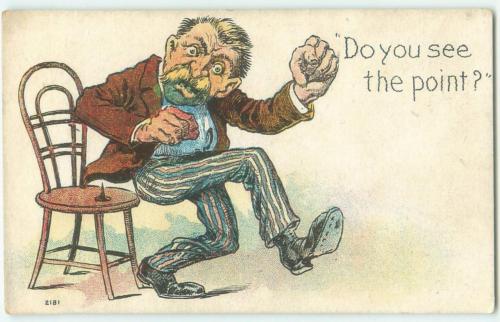







 We have a limited idea of who we are. Yes, we are each a bag of skin crowned by a cranium, but do we end in skin? What about air in lungs and energy from the sun in our bellies? Going into atoms we see nothing there – just energy waves. We’re energy waves. Not that this matters when you stub your toe, but a “hard” world is softened with a realization of how interconnected and diaphanous (light and insubstantial) this all is.
We have a limited idea of who we are. Yes, we are each a bag of skin crowned by a cranium, but do we end in skin? What about air in lungs and energy from the sun in our bellies? Going into atoms we see nothing there – just energy waves. We’re energy waves. Not that this matters when you stub your toe, but a “hard” world is softened with a realization of how interconnected and diaphanous (light and insubstantial) this all is.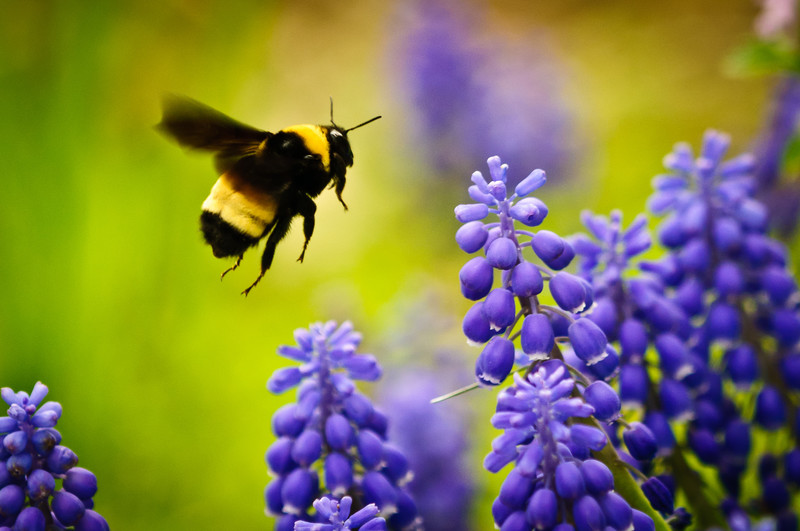
 What you love is what you enjoy. Enjoyment is a one step process: Express love for something and you are happy.
What you love is what you enjoy. Enjoyment is a one step process: Express love for something and you are happy.
 You’re up before the sun “working in a coal mine, going down down,” and someone says, “Lord! I am soooo tired. How long can
You’re up before the sun “working in a coal mine, going down down,” and someone says, “Lord! I am soooo tired. How long can  But few people see signs these days and those who do are maligned. We might crave a vision but all we have is TV. It’s not because the signs aren’t there that we don’t see them.
But few people see signs these days and those who do are maligned. We might crave a vision but all we have is TV. It’s not because the signs aren’t there that we don’t see them.


 No sooner do you have this realization when you see a sign. But it isn’t the sign that catches your attention. It’s the sign spinner. Stopped at a streetlight, you watch the sign spinner. Suddenly life doesn’t seem so bad.
No sooner do you have this realization when you see a sign. But it isn’t the sign that catches your attention. It’s the sign spinner. Stopped at a streetlight, you watch the sign spinner. Suddenly life doesn’t seem so bad. What you thought was going to be “one of those days” changes into something beautiful when you open yourself to connection and possibility.
What you thought was going to be “one of those days” changes into something beautiful when you open yourself to connection and possibility. Jump forward: now you’re in a lab cubicle waiting for a nurse to take your blood. You’re listening to the Moody Blues sing “
Jump forward: now you’re in a lab cubicle waiting for a nurse to take your blood. You’re listening to the Moody Blues sing “
 In 1927 a small woman with a big heart named Lee Morse sang, “Oh, we ain’t got a barrel of money. Maybe we’re ragged and funny, but we’ll travel along, singing a song – side by side” (“
In 1927 a small woman with a big heart named Lee Morse sang, “Oh, we ain’t got a barrel of money. Maybe we’re ragged and funny, but we’ll travel along, singing a song – side by side” (“ In 1784 a small man with a big head named Immanuel Kant wrote “
In 1784 a small man with a big head named Immanuel Kant wrote “
 When we try to improve ourselves, we can’t seem to because the one that needs improvement is the one trying to improve! Spiritual entertainer Allan Watts said that it’s the equivalent of trying to pull yourself up by your own bootstraps and it can’t be done.
When we try to improve ourselves, we can’t seem to because the one that needs improvement is the one trying to improve! Spiritual entertainer Allan Watts said that it’s the equivalent of trying to pull yourself up by your own bootstraps and it can’t be done.






 In observations of dwindling attention spans, machine-like thinking and disconnection from the garden, Carr points out how tools become part of us. Hold a hammer and your brain thinks it’s part of your hand. The more we use a tool, the more we mold ourselves around it.
In observations of dwindling attention spans, machine-like thinking and disconnection from the garden, Carr points out how tools become part of us. Hold a hammer and your brain thinks it’s part of your hand. The more we use a tool, the more we mold ourselves around it. As we extend ourselves artificially, we distance ourselves from natural functions. Like an industrialized farmer in a massive computerized machine who loses touch with the soil he serves, so too we lose touch with meaningful feelings found only in natural beauty.
As we extend ourselves artificially, we distance ourselves from natural functions. Like an industrialized farmer in a massive computerized machine who loses touch with the soil he serves, so too we lose touch with meaningful feelings found only in natural beauty.


 When you see that doing something about your situation is not going to help and not doing something is also not going to help, where are you? You’re nonplussed, as in “surprised and confused so much that they are unsure how to react” (Google). You are perplexed. Like a song and in bewilderment you are reduced to watching.
When you see that doing something about your situation is not going to help and not doing something is also not going to help, where are you? You’re nonplussed, as in “surprised and confused so much that they are unsure how to react” (Google). You are perplexed. Like a song and in bewilderment you are reduced to watching.


 A world view is how truth and reality is understood. It
A world view is how truth and reality is understood. It 



 Instead of three bears, picture three brains inside your skull like neuroscientist Paul MacLean (1913-2007) said there was.
Instead of three bears, picture three brains inside your skull like neuroscientist Paul MacLean (1913-2007) said there was. The neo-mammalian (or neocortex) is the seat of perception and imagination. Whether religious or not, the three brains theory allegorically explains why people think and do what they think and do do.
The neo-mammalian (or neocortex) is the seat of perception and imagination. Whether religious or not, the three brains theory allegorically explains why people think and do what they think and do do. Lower brains are said to be instinctive. Their concern is with reproduction and dominance, sometimes necessitating deception and violence.
Lower brains are said to be instinctive. Their concern is with reproduction and dominance, sometimes necessitating deception and violence. But in rare moments, when there are no demands put upon us, when one is quiet and comfortable, in such a peaceful interval, we are free to enter a higher mental state. When released from pride, ambition and self-justification, one looks at others not with criticism and judgement, but with a realization.
But in rare moments, when there are no demands put upon us, when one is quiet and comfortable, in such a peaceful interval, we are free to enter a higher mental state. When released from pride, ambition and self-justification, one looks at others not with criticism and judgement, but with a realization.




 You see your breath in the air and ask: “Who are you?” Who but you would know? Why not look into what it’s like being you – first person, singular, present tense? “Would you want to live and die without looking at the one doing that?” asked Douglas Harding.
You see your breath in the air and ask: “Who are you?” Who but you would know? Why not look into what it’s like being you – first person, singular, present tense? “Would you want to live and die without looking at the one doing that?” asked Douglas Harding.



 In the 1600’s Traherne wrote, “You never enjoy the world aright, till the Sea itself floweth in your veins, till you are clothed with the heavens, and crowned with the stars.” Traherne was a philosopher of enjoyment. He wrote, “Your enjoyment of the World is never right till every morning you awake in Heaven” (Centuries of Meditation). Wade (1944) writes of Traherne, “In the middle of the seventeenth century, there walked the muddy lanes of Herefordshire and the cobbled streets of London, a man who had found the secret of happiness… He became the most radiantly, most infectiously happy mortal this earth has known” (p. 2). This is the secret: It is in paying attention without thinking. Don’t be fooled by personality.
In the 1600’s Traherne wrote, “You never enjoy the world aright, till the Sea itself floweth in your veins, till you are clothed with the heavens, and crowned with the stars.” Traherne was a philosopher of enjoyment. He wrote, “Your enjoyment of the World is never right till every morning you awake in Heaven” (Centuries of Meditation). Wade (1944) writes of Traherne, “In the middle of the seventeenth century, there walked the muddy lanes of Herefordshire and the cobbled streets of London, a man who had found the secret of happiness… He became the most radiantly, most infectiously happy mortal this earth has known” (p. 2). This is the secret: It is in paying attention without thinking. Don’t be fooled by personality.

 On a cold winter’s night long ago an old man sits happy by a fire. He enjoys warming himself after a difficult day and realizes with surprise how fantastic he feels.
On a cold winter’s night long ago an old man sits happy by a fire. He enjoys warming himself after a difficult day and realizes with surprise how fantastic he feels.
 As he pours wine for he and his friend, the old man realizes that the whole struggle he’s had has always been between himself and the pressure of his experience to enjoy or not enjoy life. That is the battle we all wage, but now he knows that there is no need for such a struggle to prevent him from enjoying life because he can enjoy the struggle itself!
As he pours wine for he and his friend, the old man realizes that the whole struggle he’s had has always been between himself and the pressure of his experience to enjoy or not enjoy life. That is the battle we all wage, but now he knows that there is no need for such a struggle to prevent him from enjoying life because he can enjoy the struggle itself! The old man who earlier saw without seeing now disappears in seeing! He no longer is in a room with a friend and a fire as a cold wind blows outside. He is the room! He is his friend! He is the fire! He is the cold wind that blows up to the stars! The old man has broken free! In this act of imagination he feels no separation.
The old man who earlier saw without seeing now disappears in seeing! He no longer is in a room with a friend and a fire as a cold wind blows outside. He is the room! He is his friend! He is the fire! He is the cold wind that blows up to the stars! The old man has broken free! In this act of imagination he feels no separation. Nothing hurts. Nothing disturbs. He smells the smoke and hears the stew simmer. He feels the weight of his beautiful hat on his head. He touches his shirt with gnarled fingers and feels nothing but love for all that is and was.
Nothing hurts. Nothing disturbs. He smells the smoke and hears the stew simmer. He feels the weight of his beautiful hat on his head. He touches his shirt with gnarled fingers and feels nothing but love for all that is and was. Poet John Keats (1795-1821) called it “the empathic entrance into essence.” He writes in
Poet John Keats (1795-1821) called it “the empathic entrance into essence.” He writes in  Without imagination and attention our senses are filtered through self-thought. Every “thing” is a “think.” Thought can distract us from the enjoyment of living in the same way that looking down texting on an iPhone as we walk can take us unknowingly into the path of an oncoming truck!
Without imagination and attention our senses are filtered through self-thought. Every “thing” is a “think.” Thought can distract us from the enjoyment of living in the same way that looking down texting on an iPhone as we walk can take us unknowingly into the path of an oncoming truck!
 While he was scuba diving Black probably did lose his mind, not to madness, but to a beautiful feeling when there’s nothing in it but the beauty of being in the beauty of what’s all around. When inner talk runs between wanting and not-wanting, and liking and disliking is stopped—particularly in a natural setting—we can feel aware of beauty in the outside world and enjoy it like nothing else.
While he was scuba diving Black probably did lose his mind, not to madness, but to a beautiful feeling when there’s nothing in it but the beauty of being in the beauty of what’s all around. When inner talk runs between wanting and not-wanting, and liking and disliking is stopped—particularly in a natural setting—we can feel aware of beauty in the outside world and enjoy it like nothing else. 

 Enjoyment can be conscious – as in, you consciously choose to read this – or unconscious – as in, you feel something without knowing why.
Enjoyment can be conscious – as in, you consciously choose to read this – or unconscious – as in, you feel something without knowing why.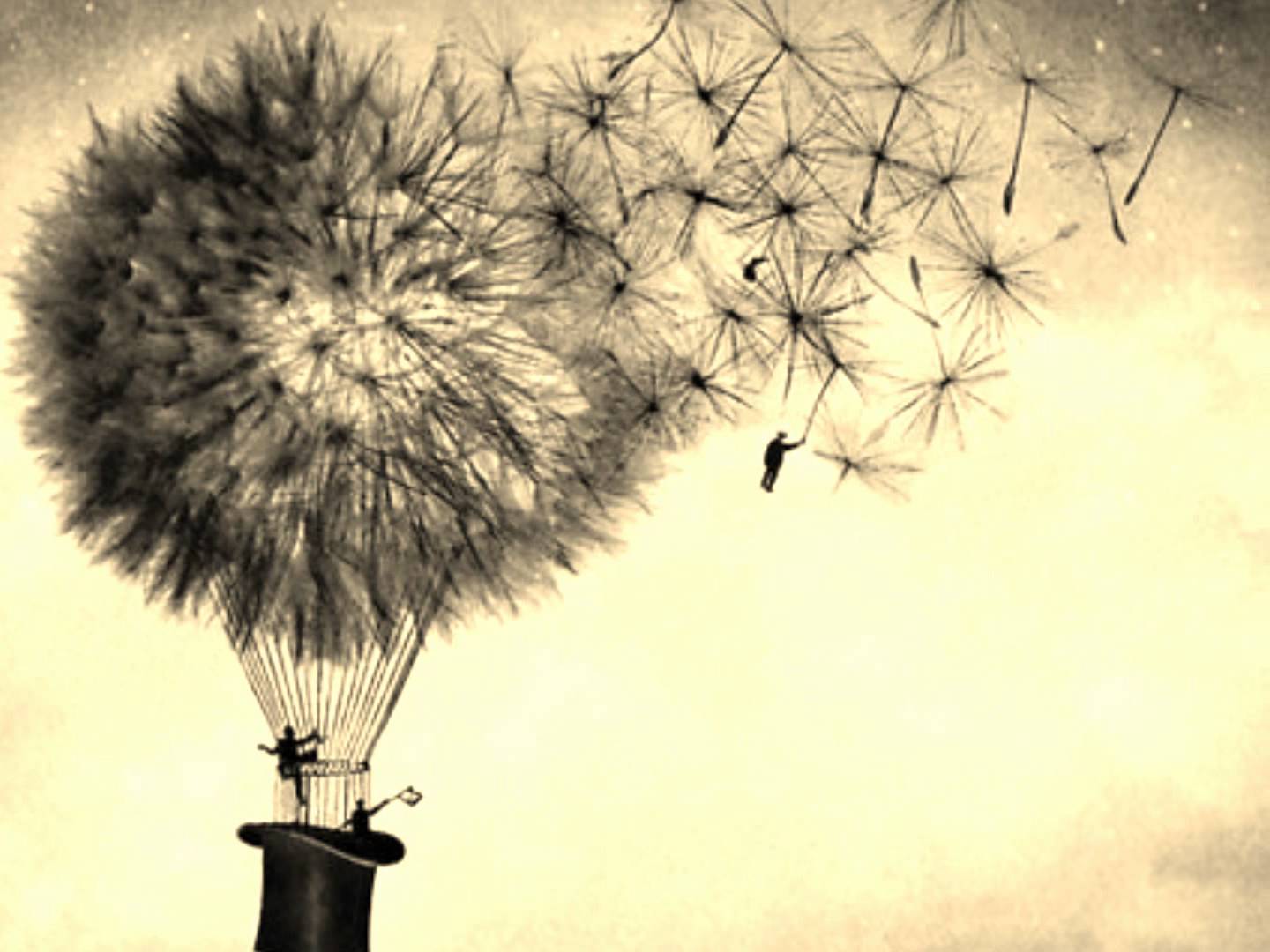
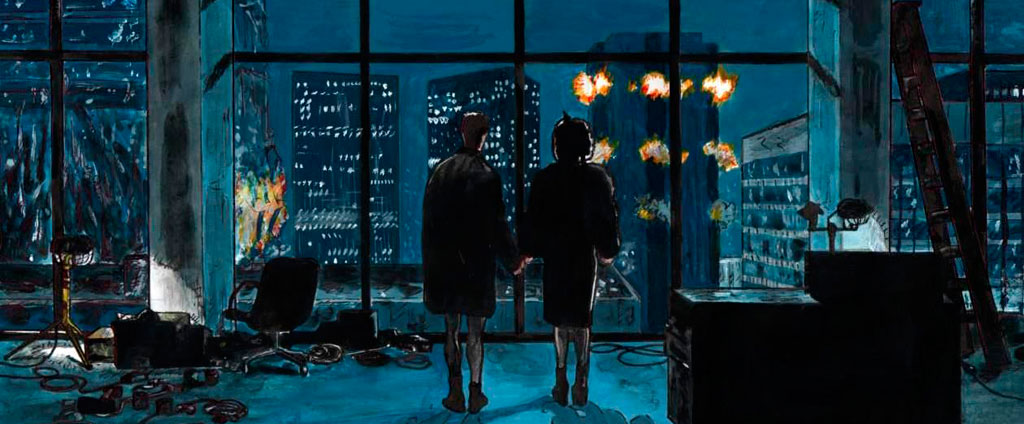
 When you enjoy, you become as a poet.
When you enjoy, you become as a poet.